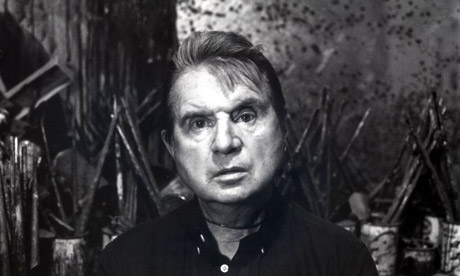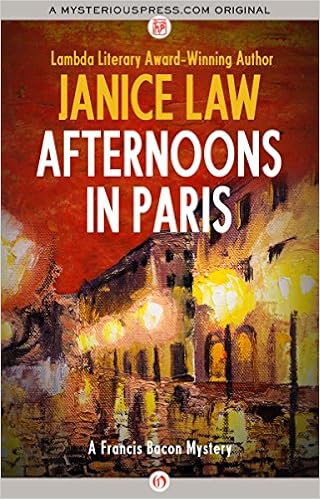 |
| Martin Edwards |
Oh, and seems like he accomplished most of this in his spare time, since he's also had a long legal career.
In two weeks, Malice Domestic will celebrate Edwards with this year's Poirot Award, honoring outstanding contributions to the mystery genre. I can hardly imagine anyone who deserves the award more.
In advance of that, Edwards indulged me with a interview—while traveling and via iPhone!—a few quick questions touching on each area of his distinguished career.
Art Taylor: At last year’s Malice Domestic, you won an Agatha Award for The Golden Age of Murder, and this year, you’re returning as the Poirot Award honoree, with that same book among the cornerstones of your contributions to the genre. Other than awards, what’s been a particularly memorable moment in the reception the book has received?
Martin Edwards: I worked on The Golden Age of Murder for many years, thinking few people would share my enthusiasm. Of all the many gratifying responses, I treasure the review in The Times by Marcel Berlins, one of our leading and most respected reviewers. Modesty forbids me to quote it here. But not to include it on my website!
[Editor's note, overriding Edwards' modesty: The Times wrote that "Few, if any, books about crime fiction have provided so much information and insight so enthusiastically and, for the reader, so enjoyably... No other work mixes genre history, literary analysis and fascinating author biographies with such relish.”]
Is there more ahead in your work as a historian?
Yes, this summer will see publication of The Story of Classic Crime in 100 Books, a companion to the British Library's amazingly successful series. It's a book I'm very proud of.
How do you select books for the British Library's Crime Classics series, and has there been a title that you’ve been particularly proud to reintroduce into publication?
I act as consultant to the British Library and make endless suggestions about books, but they make the decisions. I'm very pleased about many of the reprints but writing a new solution to Anthony Berkeley's The Poisoned Chocolates Case was a particular joy.
[Another editor’s note: A joy for this reader as well!]
John Dickson Carr has said that short fiction is the natural form of the detective story. What special place does short story hold for you in the mystery genre? What do you value most in a short story—and what are your own goals and challenges in writing your own short fiction?
Short stories are wonderful! Sherlock and Father Brown were at their best in the short form, and today it remains a great vehicle for a mystery (as you have shown, Art!). A great short story grips from start to finish with no wasted words or longeurs.
One of the pleasures of short story writing is the chance to experiment, to take risks that might seem too daunting in the context of a novel that could take a year or more to write. I wrote short stories set in the countryside before moving from a Liverpool-based series to one set in the Lake District, and that apprenticeship did help. In between finishing one novel and starting another, writing a short story or two can offer a welcome change of pace, and get you in the mood to start another long haul. And there are some things you can do in short stories that you simply can’t do (or at least I couldn’t do) in a novel. One example is a very short story I wrote in the form of an extract from the index to a book. Another is a story called "Acknowledgments" which takes the form used by authors when they include acknowledgments in a book; except that in this story, things take an unexpected turn....
While you’ve obviously been busy in many directions, your fans are waiting for the next novel! What’s ahead for the Lake District Mysteries? (And really, where do you find time to do all that you do?)
I am working on a different kind of novel at present but after that it is back to the Lakes! I hope to continue to mix fiction and fact as a writer. I love both. As for time, well, life is short. I want to write as much as I can but most of all I want to write as well as I can. The awards have been hugely encouraging and the Poirot award is a great honour for which I'm truly grateful. I hope to repay that honour by writing the best books I can—and as a novelist I think the best may yet be to come. We'll see!
IN PERSONAL NEWS (Back to Art)
I'll close out this post with a bit of news about my own work. Last week, I learned that my story "Parallel Play" from Chesapake Crimes: Storm Warning, already a finalist for this year's Agatha Award alongside fine fiction by fellow SleuthSayers Barb Goffman and B.K. Stevens, has also been named a finalist for this year's Thriller Award for Best Short Story—and I'm in good company there too, with a slate that includes Eric Beetner, Laura Benedict, Brendan DuBois, and Joyce Carol Oates! The winner will be announced at ThrillerFest in New York in mid-July—and I'll be making my first appearance at that conference as well, keeping fingers crossed, of course, and toes too, let's be honest!
In the more immediate future is Malice Domestic itself, April 28-30 in Bethesda, Maryland, and here's my schedule below for that weekend.
- Opening Ceremonies • Friday, April 28, 5 p.m.
- Welcome Reception & Anthology Signing for Malice Domestic 12: Mystery Most Historical (as part of editorial selection committee) • Friday, April 28, 9 p.m.
- Panel: “Make It Snappy: Agatha Best Short Story Nominees,” with Gretchen Archer, Barb Goffman, Edith Maxwell, and B.K. Stevens, moderated by Linda Landrigan • Saturday, April 29, 10 a.m.
- Agatha Awards Banquet • Saturday, April 29, 7 p.m.



 No, not that one, this one:
No, not that one, this one: 

































